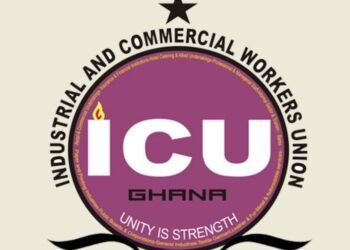The Agyapa Royalties agreement has received a lot of backlash from the public and associations concerning the procedure and the implementation of the deal. Notable amongst the organisations are the Civil Society Organisations (CSOs) who have constantly been on the issue since it came to the public domain and as a result, are calling on the government to provide the data backing the Agyapa Royalties agreement.
The call by the CSOs is as a result of the conflicting numbers of data available on revenue generated from royalties in 2019 against the calculations. This they said is needed, in order to help in the estimation and forward calculation of how the revenue stream with regards to the Agyapa deal will look like.
The Deputy Executive Director for Africa Centre for Energy Policy (ACEP), Benjamin Boakye, speaking on behalf of the CSOs during a press conference said, there is the need for government to make available the assumptions and reserves they used, the distinctiveness of government royalties and how all of them were factored into the calculations.
“We need data, we need the assumptions. You know, we need data on the reserves that they used, the distinctiveness of government royalties and how all of them were factored into the calculations because the work we do and the trend we see in the sector is that year on year, in terms of output, government royalties have been increasing.
“Ghana has been improving on output. So all of that have to be reflected in the assumptions that government will use to value the assets and that helps us ask relevant questions so that we’re not just assuming or speculating but we have numbers that we can interrogate and say ‘you are wrong, you’re not factoring this, you’re not analyzing this’ and we can be better informed about the decision that is being taken. So that is really what we’re seeking to do with that.”
According to the CSOs, the data they have seen is from the Chamber of Mines which they believe is what the Ministry of Finance has made available, and these are conflicting numbers as their calculations of revenue generated from royalty in 2019 is different from what government has been circulating.
“Those numbers are important because part of the conversation we’ve been having were the valuation of the asset or, the revenue is to be able to ensure that we are not undervaluing the asset. So, while we were maintaining that Ghana got about $200million in 2019, government conversations kept putting the number around $150million and we don’t know why government, that should have a full picture of how much royalty it received in 2019, would be underreporting the numbers.”
They further raised concerns of the fact that the current data makes them unsure about the valuation government has put on the assets and are taking to the market.
“So, if you’re underreporting that, then we don’t know what actually fed into the one billion undervaluation they got and we’re asking questions about the valuation because if you’re selling your product, you should know how much you want for that product…the market will give you a fair value, what they think is the value of the asset. So, if government says the one billion is not the valuation that they’re taking to the market, then they should tell us what valuation they’re taking to the market.”




















